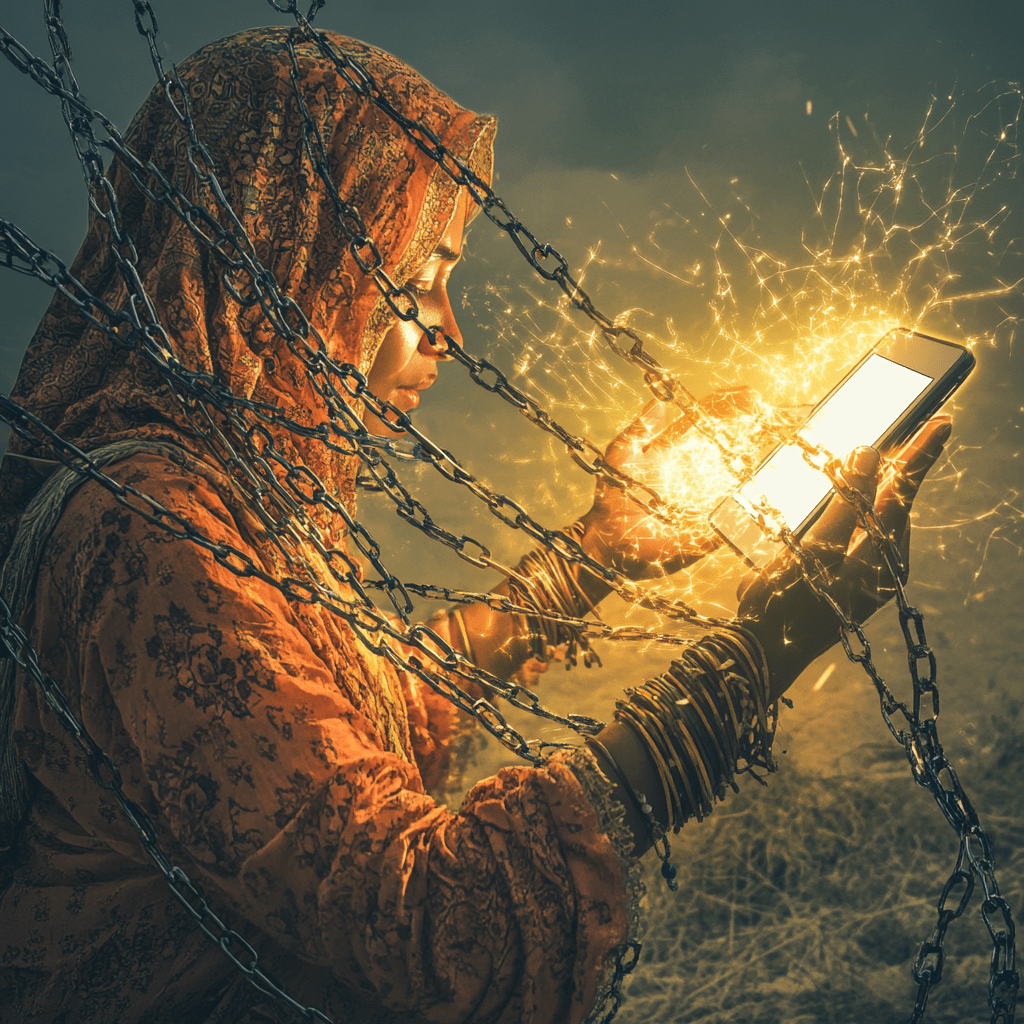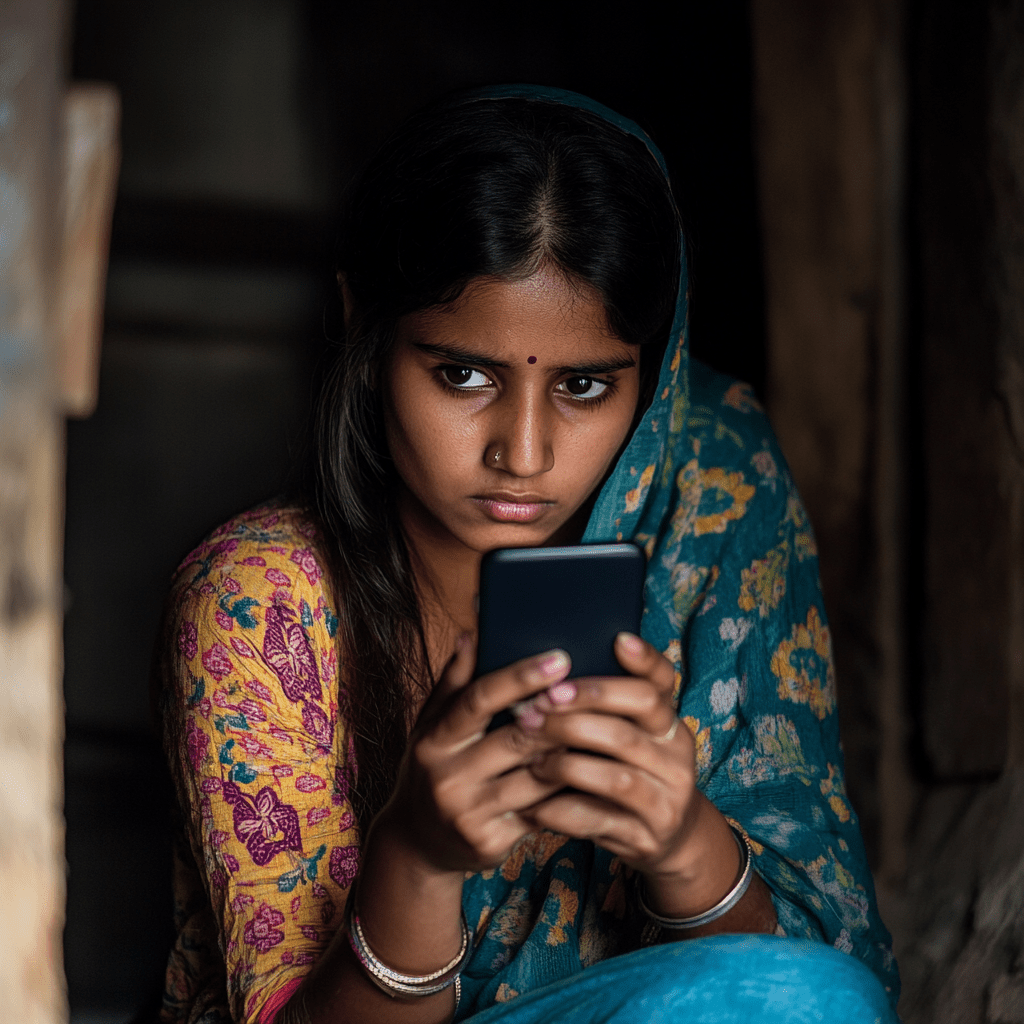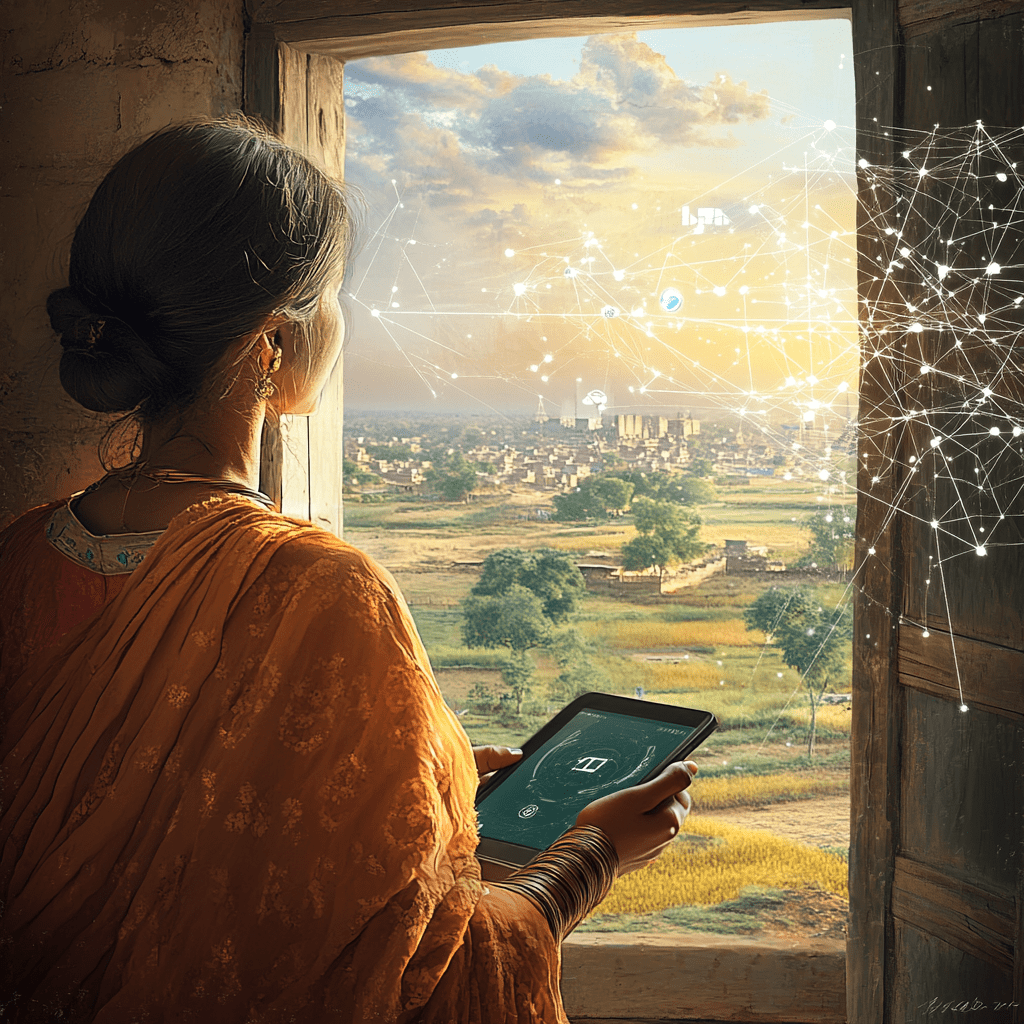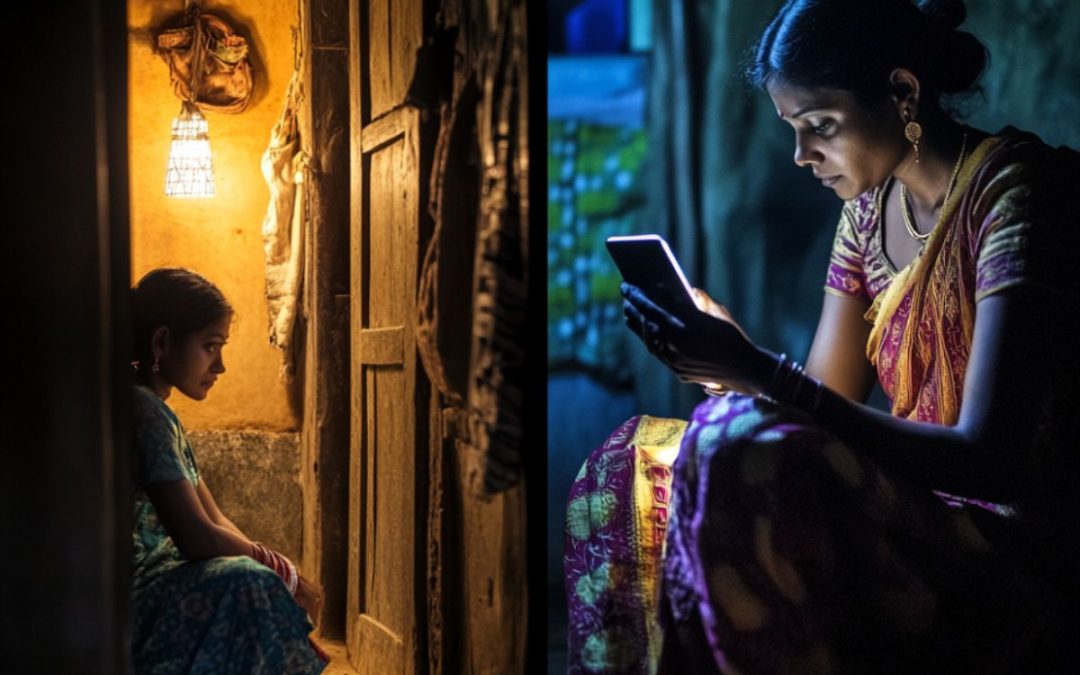Amid the vast landscapes of rural India, where tradition holds a firm grip and silence often speaks louder than words, countless women navigate their lives under the weight of invisible chains. These chains—woven from cultural expectations, societal norms, and the ever-present threat of domestic violence—bind them to a life where their voices are stifled, their dreams often extinguished before they can fully take shape.
Yet, amid these quiet struggles, a subtle but powerful revolution is brewing. It doesn’t march down village roads or rally in town squares; instead, it flickers quietly on the screens of smartphones and tablets. This revolution is fueled by the internet, a tool that, in the hands of rural women, has the potential to reshape their destinies.
Imagine a woman in a remote village, her life dictated by the rules of a patriarchal society. Her world is small, confined to the boundaries of her home and the expectations placed upon her. But now, for the first time, she has access to a device that connects her to a world beyond those boundaries—a world where information is power, and connection can mean survival
Breaking the Silence of Domestic Violence

Domestic violence is a pervasive issue in rural India, often shrouded in silence and stigma. Cultural norms and fear of social ostracism prevent many women from speaking out or seeking help. The internet, however, can serve as a powerful tool to break this cycle of abuse.
Through online platforms, women can access crucial information about their rights, legal recourse, and available support services. Helplines, counseling services, and survivor stories can be accessed with just a few clicks, providing the support and courage needed to take that first step toward freedom.
Moreover, online communities offer a safe space for women to share their experiences anonymously, connect with others who have faced similar challenges, and find solidarity in their struggle. The internet can transform isolation into connection, offering a lifeline to those who feel they have nowhere to turn.
Challenging Oppressive Cultural Norms

In many rural communities, deeply ingrained cultural norms dictate every aspect of a woman’s life, from her education to her role within the family. These norms often limit her opportunities, freedom, and ability to make decisions for herself. The internet, however, has the potential to challenge these norms and foster a new narrative of empowerment.
Through access to diverse perspectives, success stories, and educational resources, rural women can begin to question the traditions that hold them back. They can learn about their rights, discover new opportunities, and find inspiration from other women who have defied the odds.
Social media platforms and online campaigns can amplify these voices, bringing attention to the need for change and creating a ripple effect within communities. As more women gain access to the internet, the collective power of their voices can challenge and dismantle the very norms that have kept them oppressed for generations.
A Pathway to True Empowerment
The internet is not just a tool for connection; it is a gateway to empowerment. For rural women, it offers the possibility of education, economic independence, and social change. But beyond these tangible benefits, it offers something even more profound—a sense of agency.
With access to information and the ability to connect with the world beyond their village, women can begin to take control of their lives. They can make informed decisions, advocate for their rights, and demand a seat at the table. The internet empowers them to shape their own destinies.
But for this potential to be realized, there must be a concerted effort to bridge the digital divide in rural India. Internet access must be expanded, digital literacy must be prioritized, and women must be given the tools they need to navigate this new digital landscape.
Resources for Rural Women Facing Domestic Abuse

Access to the internet can be a lifeline for women experiencing domestic violence. Here are some essential resources that can provide support, information, and a way out of dangerous situations:
1. Online Helplines and Counseling Services
- National Commission for Women (NCW) Helpline: The NCW offers an online complaint registration system where women can report domestic violence and seek legal help. The helpline number is also accessible through WhatsApp for quick assistance.
- Sakhi One Stop Centers: These centers provide integrated services including police assistance, medical care, legal aid, and psychological counseling. Many have websites and mobile apps for easy access to support.
- Snehi – Emotional and Mental Health Helpline: An online platform offering counseling services, where women can anonymously speak with trained counselors.
2. Legal Information Portals
- National Legal Services Authority (NALSA): NALSA provides free legal aid to women and offers detailed information on rights and legal procedures through its website.
- Breakthrough India: A website that educates women about their legal rights, especially in cases of domestic violence, and provides resources for seeking justice.
3. Supportive Online Communities
- Aman Movement: An initiative against domestic violence, offering an online platform where survivors can share their stories, find solidarity, and access resources.
- Red Dot Foundation (Safecity): An online platform where women can anonymously report incidents of harassment and violence, helping to map areas of concern and raise awareness.
4. Mobile Apps for Safety
- My Safetipin: A personal safety app that provides information on safe spaces and allows users to mark unsafe areas. It also offers an emergency contact feature.
- Himmat Plus: A mobile app by the Delhi Police, providing a direct line to police assistance and allowing women to send an SOS alert with their location.
- Women in India can call 181 for 24-hour assistance with safety-related issues
5. Educational Resources
- Stree Shakti: An online platform offering resources and information on women’s rights, legal provisions, and safety measures.
- Women’s Empowerment Foundation: Offers educational content, webinars, and articles on how to recognize and deal with domestic violence.
6. Financial and Vocational Training
- Swayam Shikshan Prayog (SSP): Offers online training programs aimed at helping rural women achieve financial independence, a crucial step in escaping abusive situations.
- Digital Empowerment Foundation (DEF): Provides digital literacy programs and vocational training, empowering women to build careers and gain financial independence.
The Power of Connection
In the fight against domestic violence and oppressive cultural norms, the internet is a powerful ally. It offers rural women the chance to break free from the chains that bind them and step into a world of empowerment and possibility.
By ensuring that every woman in rural India has access to the internet and the information it holds, we can create a future where no woman is silenced, no woman is isolated, and every woman has the power to live her life on her own terms. The time to act is now—the time to connect is now.

